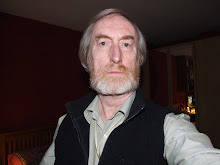Unstated – Southwark Playhouse, 7th July 2008
South-Eastern have still done nothing about organising a train to get me direct to Charing Cross (or London Bridge, in this case) at this time of the evening. (Nor have they, incidentally, taken the Eltham stationmaster to task about his pigeons.) So there was more exercise at Lewisham. I can get myself to Eltham station in plenty of time, but when there is a connection, it creates all this anxiety. I hate just missing a train, so I always have to dash off the train and rush out to see the times of connecting trains. I console myself that all this exercise is good for me. When I used to commute, and the Olympics were imminent, as they are now, I used to think commuting should be an Olympic sport. I even brightened up some terrible journeys designing the course and rules for such an event. It would be a bit like a cross between ‘Mornington Crescent’ and triathlon, with the transitions being critical to success. The Olympics are always held in big cities. The course would be a genuine commuter route in that city, at genuine commuting times. The basic rules would be ‘A’ to ‘B’, public transport only, no taxis (unless that is the only option left). How do you think the London champion commuter would do getting across Peking (sorry, Beijing)? There would be a serious home advantage, but it would give us all an insight into how daily life in Beijing compares with that of London/ NewYork/Paris/Moscow/etc. And one can certainly easily imagine the four years of preparation, with many expert coaches.
I have been banging on for ages now about how important it is for audiences to know how to behave. The audience is a significant part of any performance, and can even, in some circumstances, wreck it. Now I notice Quentin Letts (Daily Mail political sketch writer) has joined the chorus in a piece in the Independent (30 June). Well, if it achieves nothing else, ‘Unstated’ offers a significant contribution to this debate. The entire audience is fingerprinted, photographed and issued with identity cards on the way in. During the performance, they are herded from scene to scene by the cast, one of them adopting a Glasgow accent, an accent peculiarly well-suited to this purpose. None of the audience misbehaved in any way at all. There’s a lesson there, isn’t there?
This play is, of course, about asylum-seekers, and how they are treated. We had four fine young actors wrestling manfully with the texts of at least 4 fragmented plays, with an unmade documentary poured liberally (and I do mean liberally) all over it. It was as if they had been cast in a Shakespeare historical, only to find that Simon Schama kept popping up to explain the real context (which I have no doubt he could do, by-the-way). If it had been a drama school exam, it would have been their worst nightmare. But, amazingly, with the significant help of a really good production, especially the staging, they pulled it off. They should be proud of themselves. I gave them an ‘A’.
The documentary bits, produced as TV interviews on ‘the giant screen’, were obviously intended to impress on us the verisimilitude of the subject matter. But one of the best definitions I have ever heard of drama is that it is “lying for the purposes of telling the truth”. Drizzling pompous ‘rent-a-mouths’ through the play simply destroyed any possibility of the actors achieving significant empathy for their character.
The (at least) four plays trapped in here might be quite good; some parts showed promise. The documentary won’t make it to screen (except, maybe, late night on BBC4).

No comments:
Post a Comment